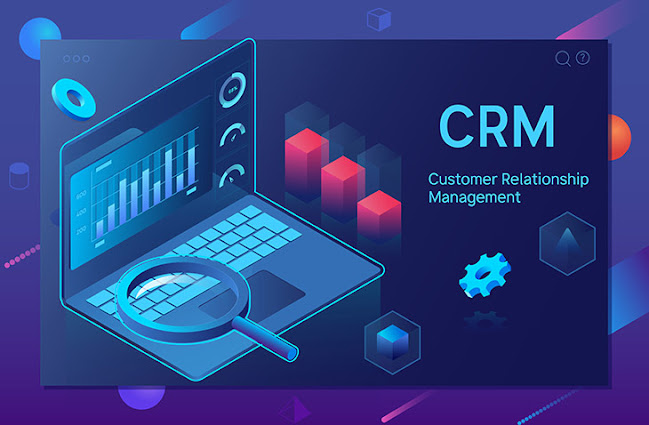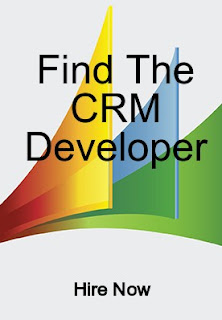Why Shopify CRM Should Be Part of Your Ecommerce Business
Shopify retailers in today’s digital age face challenges that shops in days gone by didn’t have to deal with. One of the hardest to get a handle on is that there are no physical customers to engage with as they enter your Shopify store. Nor can you perch behind the counter and surreptitiously watch visitors to see what they’re interested in or hear what they’re saying about your merchandise. Instead, you need to find alternative measures to make that connection.
Fortunately, CRM Software Development companies are making Customer Relationship Management (CRM) software that gives eCommerce entrepreneurs the digital equivalent of the seat behind the counter. A Shopify CRM solution keeps track of all data related to customer activities and organizes it into one central core database, making it easy to access and analyze. These days, it is almost impossible to operate an eCommerce business without CRM.
What is a Business Without a Client Base?
The client base is probably the most important aspect of success in any business. Without people who want, need or require your services, you pretty much have nothing at all. Of course, it is safe to say that when using a variety of sales channels, as any good retail venture does, it is difficult to get timely information across all your stores. Figuring out the make-up of your customer base with cross-channel comparisons is always a daunting task, given that your sales channels usually operate on different systems that don’t connect.
Ecommerce CRMs take all the hard work out of getting to know your customers. They are designed to plug-in to any and all of your stores, collect data in real-time and merge it into a central hub. With this tool, you’ll be able to see which customers are looking at which products, what they’re buying and even what they’re saying about your store on social media.
A customized CRM system allows your customers to feel that personal attention that they would do in a brick and mortar store with salespeople assisting them, helping secure what HBR says is a “great digital image.” Besides names and emails, there is a multitude of data about each customer scooped up by a CRM that empowers you with the information you need to ascertain where changes are required and which ones should be implemented. It will also help you to discover whether your intended market is being reached. Age, gender, product preferences along with information on whether a particular client returns goods regularly is easily attainable.
To keep your customers happy, you need to understand them and know everything about them. The right CRM provides you with the tools to make this a reality even without having a face for the name.
Products and Services
Your product and service line will always be closely linked to your customer base as well as your intended market. By keeping track of your customers, you in effect keep track of products that are selling well and are on the preference list of your customer base and products which appear to be obsolete due to no sales. The rate of return of certain items also provides you with the necessary information required to consider making changes to your product line.
Customers will only keep returning if they find items that they are looking for. The thing with eCommerce business is that customers go there in search of particular items and if they don’t find it at your store, they move on. You don’t want that to happen.
Marketing - A Pivotal Factor
Ecommerce business is heavily reliant on marketing lists and strategies, probably even more so than other businesses. By accumulating data of customers’ activities on your site, you have the kind of personalized information required to structure highly targeted marketing campaigns. For example, you can devise discount strategies for the group of customers that frequently show interest in a particular webpage of products but don’t seem to make a purchase. And you can flag trouble customers and eliminate them from your marketing list.
The information gathered by your Shopify CRM will also help you to realize whether your intended market is being reached. If not then you can make the necessary changes to your marketing strategies to incorporate these groups. It’s becoming more and more evident to business owners that the marketing capacity of an e-commerce CRM alone is worth its price.
Lead Generation - No Leads = No Sales
Lead generation is integral in increasing sales. While the CRM itself cannot make the sales, it can give you the necessary information on customers who can be targeted and encouraged to make those much-needed sales.
Once you know who it is you need to convince, you can work your strategy accordingly. Not all groups of people require the same attention. Many different factors influence how a customer should be approached. Age, gender, nationality, these are all telling factors. While some people require a little coaxing, others may require a more aggressive approach.
What your CRM does is provide your team CRM tools to properly strategize, plan and turn those leads into sales. Without a CRM system, converting leads to sales can be a task that is really trial and error and usually results in a lot of time wasted without the desired results.
CRM - There Is No Downside
As it is these days, life is increasingly hectic and there are often not enough hours in the day for what needs to be done. Your CRM system will free up your time wasted on accumulating the information you require and allow you to direct that time to improve your customer relations, making the necessary adjustments to your product line and creating marketing strategies that will keep your customers coming back to see what’s new on a regular basis.
Additional Perk:




Best Shopify Development Company,
ReplyDeleteShopify Web Development Services India,